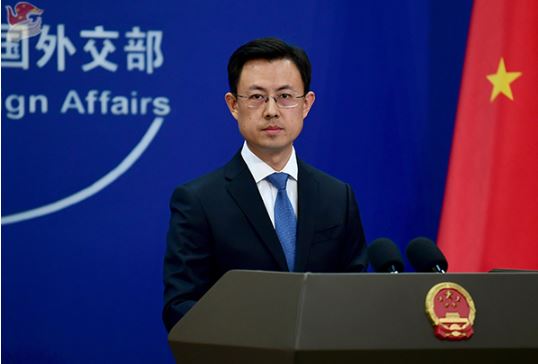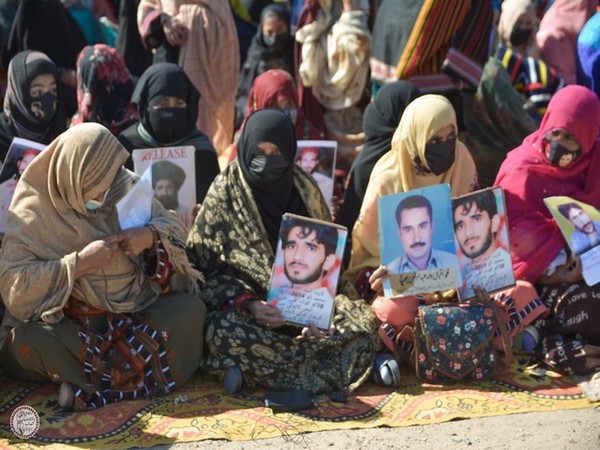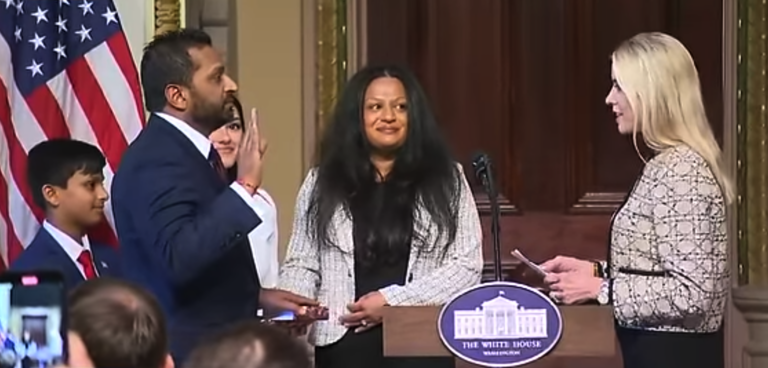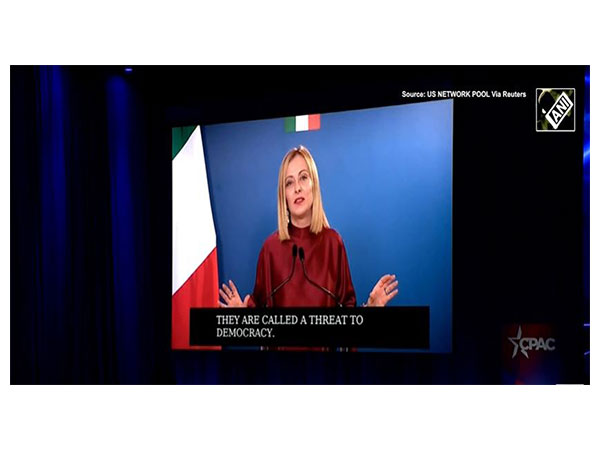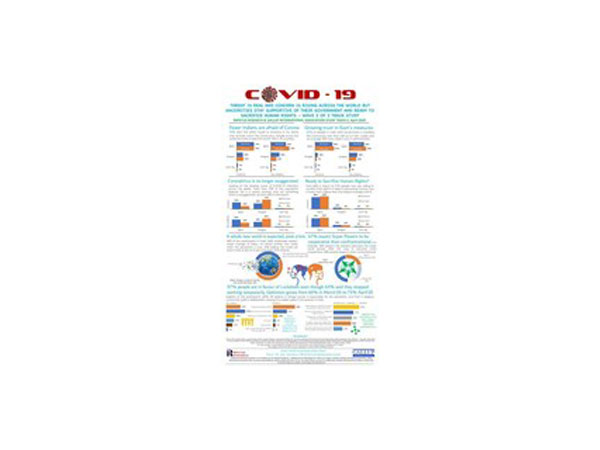
Gallup International Association and Impetus Research COVID-19 snap poll wave 2 finds rise in global concern about the spread of coronavirus
New Delhi [India], April 20 (ANI /PRNewswire): India ranks highest with 91 per cent believe Indian Government is fighting against the disease well and over 79 per cent ‘strongly agree’ that extended lockdown is the right step to contain the outbreak.
These are some of the conclusions from the second ‘snap poll’ held by the world’s longest-running global polling network, Gallup International Association.
The survey was carried out in 18 countries around the world including Germany, India, Italy, Russia, USA, etc. The first wave was in March 2020. Over the last few weeks, fear of catching the coronavirus has increased in almost all of the surveyed countries.
For instance, with the spread of the virus in the USA, the share of those who express their worries that they or a member of their family may actually catch the coronavirus has increased by 25 points.
More people are afraid now in Thailand, Switzerland, Argentina, Austria, Japan while 70 per cent people in India fear of the infection of themselves or their families. On the contrary, the population in Italy has become more accustomed to the situation, with their share of concerns about catching the virus has decreased by 9 points.
People in India and Malaysia strongly believe that their government is handling the situation well, Austria (86 per cent), Pakistan (82 per cent), Philippines (80 per cent up from 70 per cent), Germany (75 per cent significantly up from 47 per cent) seem to be very satisfied with the way in which their Governments are handling the crisis.
The highest share of dissatisfaction with the authorities in regard to the COVID-19 situation is registered again in Thailand – 81 per cent disagree that their government is doing well with the current situation.
Negative sentiment has increased by 5 points within a few weeks. The second place in terms of dissatisfaction remains Japan – 69 per cent disagree that the authorities are handling the situation well (increase by 7 points).
Public opinion in the USA is rather divided – 48 per cent are satisfied with the state measures and 48 per cent are not. With a global spread of the virus and corresponding government measures, the survey shows that more and more people accept the threat is real.
Globally, about two-thirds (63 per cent, up from 59 per cent) of respondents around the world do not think that the threat of the coronavirus is exaggerated, India (71 per cent up from 43 per cent in March).
The increased threat has impacted the willingness to sacrifice some of the human rights if this helps to prevent the spread of the infection. In March, 75 per cent of the population surveyed were willing to sacrifice their human rights until the threat from COVID-19 has gone.
This share now equals 80 per cent globally. The highest levels of readiness are reported in Iraq and Pakistan (92 per cent), India and Thailand (91 per cent), but also in Austria (86 per cent), Germany (89 per cent), Italy (85 per cent), and Switzerland (86 per cent). What comes after the crisis?
When asked about what will happen to the world when the pandemic is over, 49 per cent people in India feel that major changes can be expected with almost entirely new world. At the International level, public opinion is yet not clear.
41 per cent of the population in the surveyed countries (India 35 per cent) are expecting the world to return more or less to its pre-crisis state. However, 45 per cent globally think that there will be a major change with an almost entirely new world after the coronavirus crisis is over.
14 per cent cannot answer. Half of the population of the surveyed countries expect relations between the major world powers to become more cooperative. 28 per cent express the opposite opinion (India 24 per cent) – that relations will become more confrontational.
The remaining 22 per cent globally are unsure. Democratic principles show signs of endurance in these difficult times. In countries including Austria, Argentina, Germany, Kazakhstan, Switzerland and India more than 90 per cent of respondents disagree that democracy is not effective in the current crisis, re-affirming faith in the democracy.
17 per cent globally share the opinion that democracy is not effective in the current crisis. The highest levels of approval for this provocative statement are registered in Pakistan (49 per cent), Malaysia (43 per cent) and Russia (32 per cent).
The current crisis also has a serious impact on economic life. Right now 36 per cent globally (India 29 per cent) claim that they have lost a serious part of their income (especially in Pakistan 84 per cent, Indonesia 61 per cent, Thailand 63 per cent), 28 per cent say that they have temporarily stopped working (mostly in India 45 per cent, Pakistan 45 per cent, Malaysia 51 per cent and Philippines 55 per cent), 15 per cent worldwide claim to have lost their jobs Pakistan 68 per cent reported the highest loss of jobs while India reported 5 per cent.
(Pakistan, Philippines, Malaysia) and 12 per cent say that they now work part-time. One-third, however, says that the crisis has not impacted their lives so far in terms of jobs and income. The largest shares in this regard are registered in Austria, Germany and Japan.
While people around the world are reeling under the crisis, Indians are much more optimistic (75 per cent up from 60 per cent) with a strong belief that we are over the worst of it and things will begin to improve.
When further explored on who do you think is responsible for the spread of this deadly virus, a majority 69 per cent feel that a foreign power is deliberately causing the spread of coronavirus and on the domestic front, 66 per cent believe that ‘a religious community is deliberately causing the sudden spike in the spread of coronavirus’ in India. “This panic we see, unprecedented in modern times, is a culmination of a series of mass fears on a global scale in the last two decades.
The underlying reasons of that mass psychosis are founded in the essence of the consumerist societies and the way the elites are servicing them. The situation now resembles ‘suicide of a civilization’ so convincingly described by Arnold Toynbee,” said Kancho Stoychev, President of Gallup International Association.
“The way out of the horror film we live in requires a happy end – in this case, a vaccine. But the major problem is that by the time the vaccine is widely available the economic devastation could be of such magnitude that a much bigger real tragedy might occur,” said Kancho Stoychev.
In India, Impetus-Research, the exclusive representative of Gallup International Association, conducted a survey over phone and online mode in the past two weeks, amongst a randomly selected population of India with a realized sample of n=1050.
The official press release highlighting key findings from around the globe can be accessed here, while tables can be found here. Methodology: The second wave of the unique Global snap poll held by the world’s leading Gallup International Association with exclusive India Partner – Impetus Research in the context of the COVID-19 situation.
Wave 1 which involved more than 22,000 people in 26 countries around the world was executed in March 2020 and the second wave consisting of 17,789 participants across 18 major countries was executed in first week of April 2020.
In India, the sample size was 1050 interviewed over phone/web/emails in the first week of April 2020. In each country, a representative sample of men and women was interviewed via telephone or online.
The margin of error for the survey is between + 3-5 per cent at 95 per cent confidence level. This story is provided by PRNewswire. ANI will not be responsible in any way for the content of this article. (ANI/PRNewswire)


